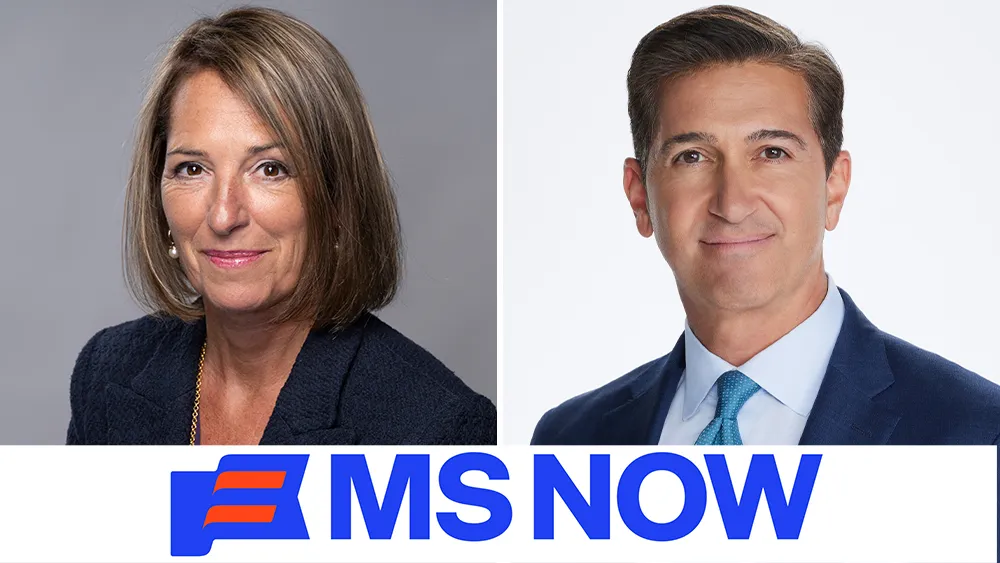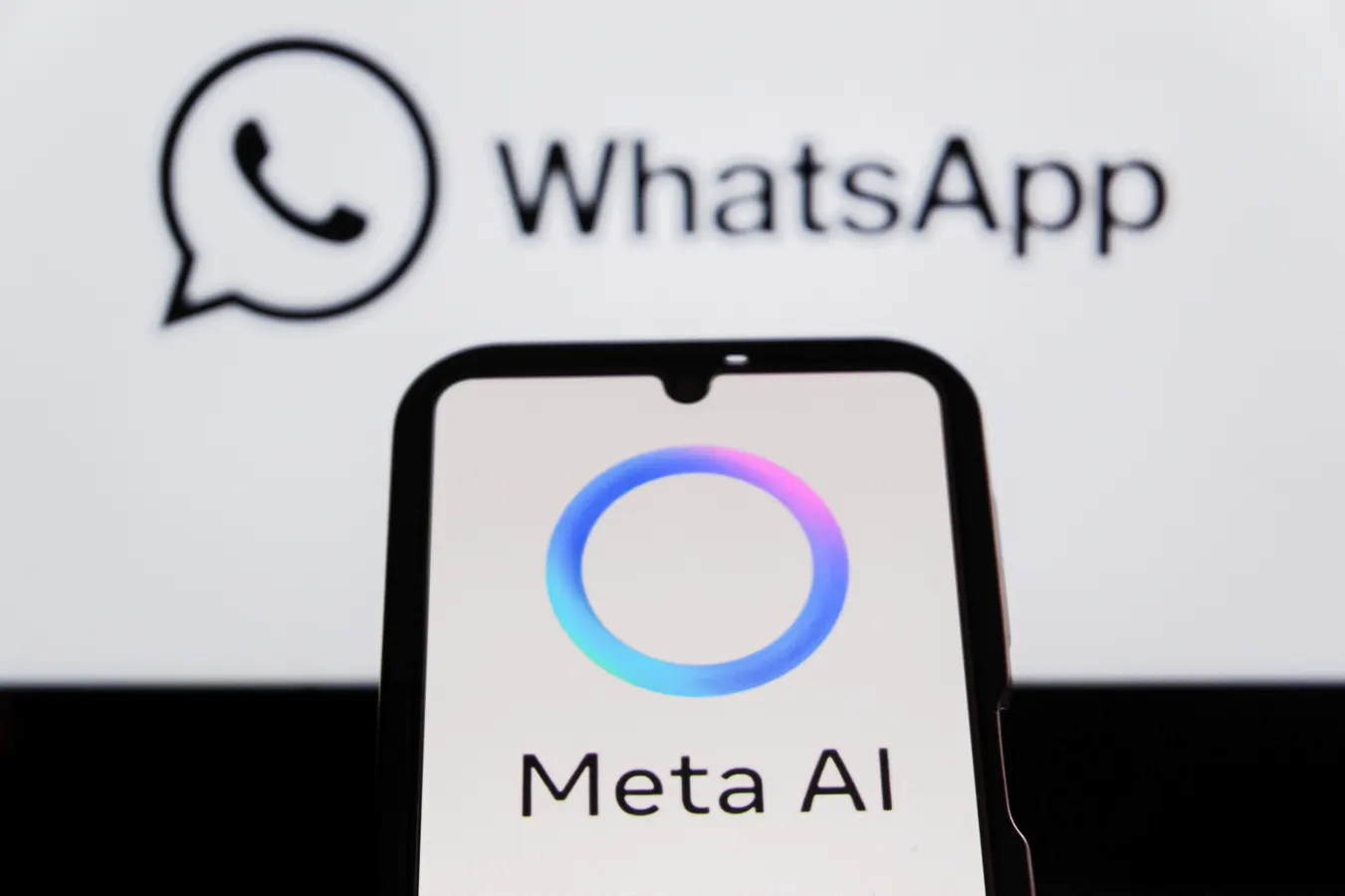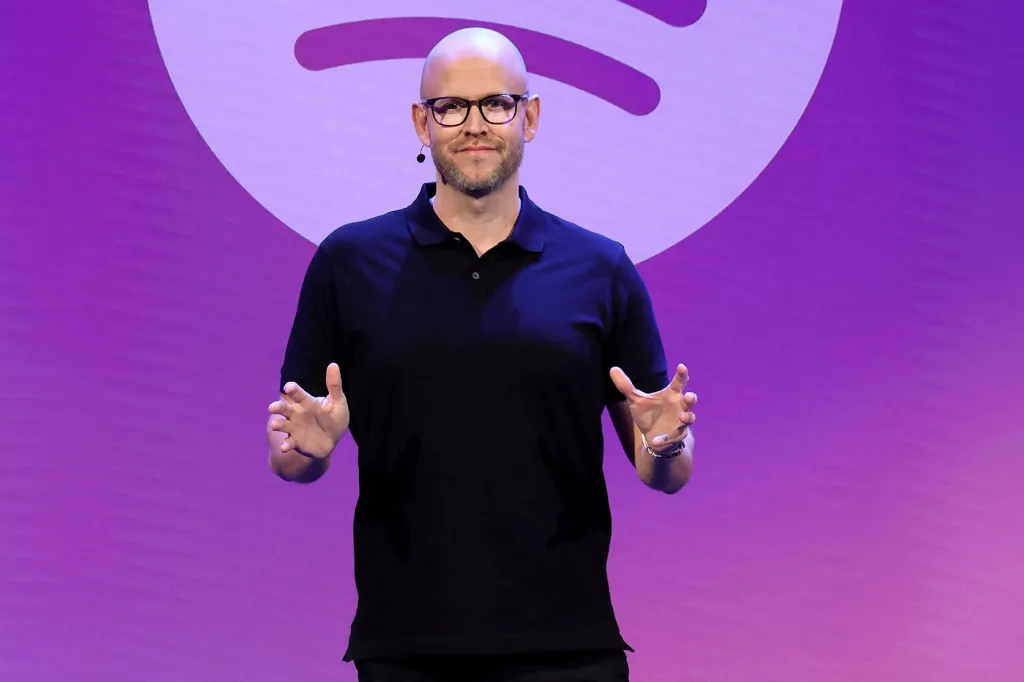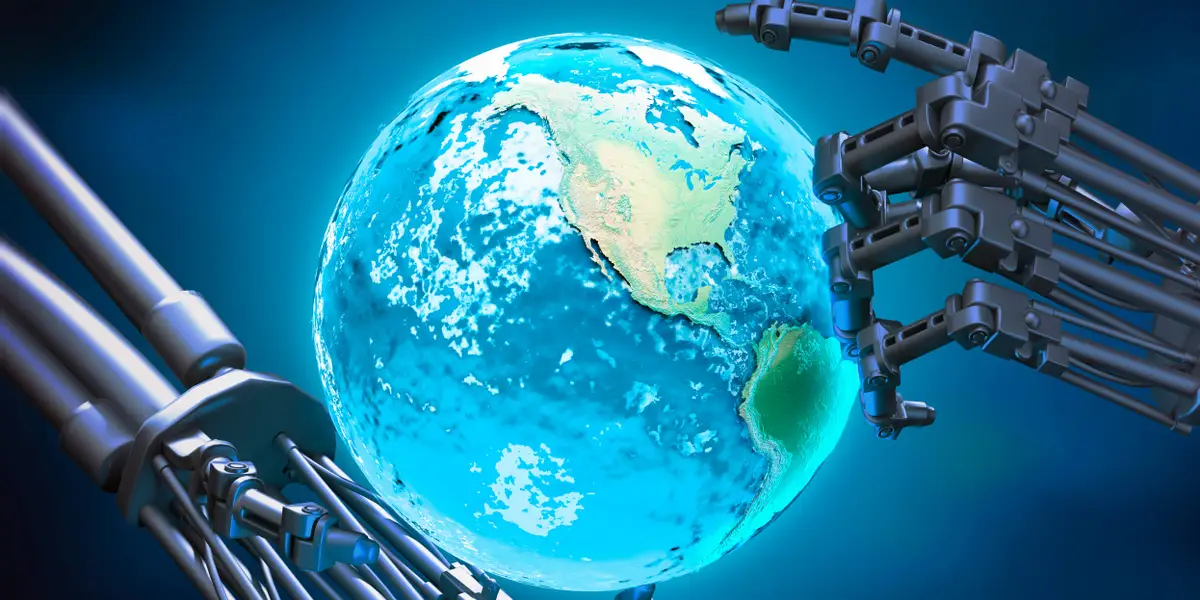Copyright Deadline

MSNBC will rebrand as MS Now on Saturday, a reflection of the cable news network’s separation from Comcast and sister network NBC News. As the new Versant network sets out on its own, it has been building up its own newsroom, with two major hires with a focus on the Justice Department and the FBI in the second Trump administration. Carol Leonnig joined last summer as senior investigative reporter, after 25 years at The Washington Post and after publishing four books, including the recent Injustice, co-authored with Aaron C. Davis. Ken Dilanian, justice reporter for the network, was an NBC News justice and intelligence correspondent, and before that he covered the intelligence community for the Associated Press and the Los Angeles Times. RELATED: MS Now Signs Deal With AccuWeather For Forecasts And Data One of their highest profile co-bylined scoops was a report that Tom Homan, now the White House border czar, last accepted $50,000 from undercover FBI agents posing as business executives. The investigation was closed after Trump became president and the White House and the DOJ dismissed the investigation as politically motivated and baseless. Homan said that he did nothing criminal, and more recently said that he didn’t “take $50,000 from anybody.” According to Leonnig and Dilanian’s report, hidden cameras recorded the scene last year at a meeting spot in Texas, where Homan accepted the sum. They cited an internal summary of the case and sources. Deadline talked to Leonnig and Dilanian about the transition to MS Now, the challenge of speaking to sources in the current environment, and whether the general public has interest in what veterans have called a “five-alarm fire” happening at the DOJ. DEADLINE: You’re working at essentially a startup. Are resources ever a challenge? KEN DILANIAN: On the TV side of it, you haven’t seen much difference, like I did a live shot at Supreme Court yesterday. It was the same live shot we would have done for NBC. I think there actually were more people there. Everybody is sort of working overtime to make sure everything’s perfect. One thing that is true is they’re building the airplane in flight. We’re adding people all the time. I don’t think we’re even done with the hiring yet. … So in terms of how we cover Washington, the resource level really isn’t that different. CAROL LEONNIG: I think I came in with full awareness that, as Ken said, the plane was going to be under construction while we were starting, and we have the great luxury and an honor to have sources trust us and want us to land these stories and share them with the public. And if we don’t have all the pieces together yet, well, Ken and I have to work a little harder sometimes because there aren’t a lot of of extra bodies. But we know that’s coming, and we have a duty to tell news in real time. And if it’s a little harder work right now, that’s that’s OK by me, because we got to get this news to the American people. DEADLINE: I wanted to turn to the reporting environment. How much more difficult has it become to get people from the DOJ or the FBI to talk to you, just given the threats that they may face from the administration. LEONNIG: Those threats have been going on since Trump’s first presidency. FBI agents and DOJ prosecutors have been targeted personally by him, and know the scarring and damage that can occur. The retribution was something that, when he was re elected, they fully expected. And I’ve been, as I know Ken has, using pretty rigorous source protection methods so that people we have and know inside these agencies can get information to us without fear that they’ll be identified. We take absolutely as sacred our promise to keep sources confidential, and we’re going to work our hardest to both protect them but make sure the American people know what’s happening. DILANIAN: There’s a twofold difference in both directions. One, yes, people are more concerned, especially about speaking publicly. They’re concerned about the implications, the retaliation. Even former officials, even people at law firms or think tanks are much more concerned about speaking publicly than they were in the past. At the same time — we don’t like talking about sourcing, but I think I can say this because it’s everybody knows it to be the case: There are people inside these agencies that are more willing to speak than ever before because of what’s happening to their agency. There are people who would never have considered talking to a reporter in the past who are willing to consider it now, just because of the dramatic things that are happening that in many cases, in their view, are not good things. DEADLINE: Carol, you said on PBS that people are describing what is happening at the DOJ as a five-alarm fire. LEONNIG: That’s right. Imagine a world where at the Department of Justice, as Ken and I reported, a senior supervisor in a little-known office of assistant U.S. attorney in the middle of Virginia is taking her live prosecutors off the case of [New York Attorney General] Letitia James to avoid them being fired when she reports to the U.S. attorney that they … do not believe there is probable cause to seek an indictment of the New York attorney general. There are a lot of very complicated efforts by these individuals to shield one another, essentially, from the hammer falling on their their head. And they also believe so strongly in their shared mission to only bring prosecutions when it’s a righteous case and when the evidence is something that can be proven beyond a reasonable doubt. RELATED: ‘The Comey Rule’s Billy Ray On Trump DOJ Indictment Of James Comey: Guest Column DEADLINE: What happens if that Comey indictment is tossed out? Do you see the Trump administration slowing their prosecution of political enemies? DILANIAN: I don’t think there’s really anything that’s going to dissuade the Trump administration and their allies from mounting these efforts. They’ve made very clear they think that it’s justified. It’s important to them. A guy named Mike Davis, who is out in public talking about it all the time, views this as one of one of their most important priorities — to pursue what they view as their as their enemy, the people that wronged them, and try to put them in prison. And whether there are legal setbacks in one particular case or another, I don’t think it’s going to going to change their calculus. LEONNIG: I 100% agree, Ken, and I think oftentimes it reminds me of when Donald Trump said in his call with Ukrainian president Volodymyr Zelensky, “Just announce, just announce there’s an investigation of Joe Biden or his family members.” The goal, I’m told by sources, is to provide red meat to the Trump MAGA base, to constantly be telling them that the Department of Justice was weaponized against Trump, even though that is obviously not true. … The other goal is to harangue, harass, intimidate. So if the Comey case gets tossed, the harassing and the implication that he engaged in the criminal activity is accomplished. DEADLINE: In other words, the threat or the investigation is the point. LEONNIG: Yes, and Comey, let’s be honest, has a lot of money, has a lot of resources. He is quite brave about taking Trump on mano a mano. What message does it send to career prosecutors who are involved in a really tense case or a controversial case that’s important? What message does it send that he’s being indicted? What are you to take from that? There are a lot of people very afraid. DEADLINE: To what extent are both of you fearful of being target of a prosecution? There is no there’s no federal shield law. Is that in the back of your mind? DILANIAN: I don’t know about a prosecution, but certainly the security of our records is always a concern, because this Justice Department has essentially rolled back the guidelines that the previous Justice Department had put in place about secretly obtaining journalist records. Essentially the prior regime said they were not going to do that, and now it feels like that’s within bounds again. The federal government has vast surveillance capabilities, and I’m always concerned about how those are being used, particularly against journalists and against us. That does keep me awake at night sometimes. LEONNIG: Yes, totally agree that the worst thing I can imagine is a leak investigation that that vacuums up our records improperly because there is no shield law under Kentucky v. Branzburg, an important Supreme Court ruling. If there’s a criminal grand jury investigation, then we and our records can be summoned. But now we know that there are grand jury investigations that are not warranted. Now we know the Department of Justice leaps into them based at Donald Trump’s behest, so that that does make me very nervous. DEADLINE: One of your big scoops was on Tom Homan and this $50,000 payment. He has said, “I didn’t take $50,000 from anybody.” Weeks had passed before he said this, and before that it was merely that he had done nothing criminal. So what is your sense of what is going on here? LEONNIG: I often have called Trump the master of the megaphone. [He and his lieutenants] have learned that repeating something that’s not true really is very successful. Repeating over and over again that Donald Trump did nothing wrong in taking hundreds of top-secret records when he was no longer president to Mar-a-Lago, that there’s nothing criminal about that. And here, in this case, it took Tom Homan a little while before he said he didn’t take $50,000 from anybody. But he knows that that has been taped. He knows that the FBI has that information. And I think that’s why, in the days immediately after, he did not deny taking it. He said he had engaged in no criminal wrongdoing. DILANIAN: It was really interesting. The initial responses that we got to the story from the White House, from the Justice Department, from Homeland Security, no one disputed that the cash was paid and that he accepted the cash. DEADLINE: Do you think we’ll ever see that tape or hear that tape? LEONNIG: We’re working on it. DEADLINE: What is the most difficult thing for each of you to convey to the public about why the effort to influence the Justice Department is significant? DILANIAN: I think it’s really hard to make regular folks understand just how dramatic and profound the disruption and the changes are at the FBI and the Justice Department. But I keep saying this on the air. We’ve never seen this in the history of the country — not even in Watergate, certainly not in the first Trump administration — the way that civil servants, public servants, have been fired without cause, the way that the White House has been imposing its will in terms of criminal investigations or dropping criminal investigations in the case of the [Mayor] Eric Adams matter in New York. This is not normal. This is not the rule of law. But regular folks have jobs and lives, and they have a lot of stuff to pay attention to… It’s hard to make regular Americans understand just what damage is being done and also how long it’s going to take, if ever, to recover from the damage that’s been done to these institutions. The amount of experience that’s walked out the door — that’s been my challenge. DEADLINE: Do you have any sense what is happening at the DOJ is starting to get politically damaging to the Trump administration? LEONNIG: Right now, the American people are starting to get it, and back to that point of the five-alarm fire: People that would normally run away from us and did in a crowded cocktail party or professional gathering, these people started to move towards us to tell us what was happening inside. Justice in the first Trump administration, inside the Biden/Merrick Garland, when he was AG, and then now in the first several months of Trump’s second administration. And they came to us because they wanted people to understand this esoteric, academic-sounding concept, rule of law that they live by. Well, rule of law is confusing to the American people, and they want to wake them up and show them that if we don’t have fair, equal treatment of Americans under our justice system, then we don’t have a democracy. We have a dictatorship. If we have a president who’s able to order up criminal charges, then we’re not living in America anymore. According to these sources, we’re living in a totalitarian state. DEADLINE: Your book details attempts to politicize the DOJ in the first Trump term. Were you surprised by that? LEONNIG: I was reporting that in real time, and I could see the way in which Donald Trump was fairly publicly ordering up an investigation of Andy McCabe, the acting FBI director who opened an investigation into whether or not Trump was obstructing the Russia probe. I could see in real time his and Bill Barr, his attorney general’s, efforts, to reduce the penalty for Trump ally Roger Stone in his sentencing for lying to Congress, and how Bill Barr also directed the dropping of the case and charges against Michael Flynn, another Trump ally who had admitted twice to the crimes he was charged with. So we could see that on the outside, but in the book, I was absolutely shocked in reporting that those individualized targets, those efforts by Trump to kind of engage in a bare-knuckle brawl with individual agents and investigators had unmoored the Department of Justice in a way, had shaken and buckled some of the foundation. The mantra of the DOJ is, we pursue cases without fear or favor. And what I learned in reporting for Injustice is fear had started to creep in. DEADLINE: Your book details how Merrick Garland tried to restore that independence, and the result was almost an over-correction where they delayed this prosecution of Trump. LEONNIG: The 15-month delay before the FBI and the DOJ began investigating evidence that they had in December 2020 — that was pretty significant. And our sources told us the details of what happened because they believed it ultimately helped fuel Trump’s campaign. It propelled him back into the office, because he had this this twofer from that delay: One, was he wasn’t under investigation, and he began assembling and rebuilding an effort to run for re-election. And second, he was able to falsely say all over the campaign trail, “Look, they’re finally coming at they’re coming after me now, when I’m campaigning. The DOJ is weaponized. They’re doing this now to better hurt my chances for getting into the White House and representing you, my MAGA supporters.” DEADLINE: When you talk about the prosecution of Comey or Letitia James, Trump supporters say that president is just doing the same thing that the DOJ did against him. LEONNIG: I’m glad I’m at an outlet like MS Now that wants us to call balls and strikes and say what we find. The real factual flaw with that is there was overwhelming evidence that Donald Trump had conspired with his campaign aides to overturn a free and fair election. There was overwhelming evidence that he had taken top-secret documents, and then lied to conceal them and avoid returning them. DEADLINE: Did it surprise you at all, in researching the book, how cautious Merrick Garland was, or did you know that kind of going in? LEONNIG: The decision to do a book, in essence, started with a news tip that Aaron and I were working on. I had gotten it, and the two of us began reporting it for our newspaper, which was that there was no investigation in the first year of the Biden administration, looking into Trump. And we thought that was probably unlikely, but the tip panned out. It was true. And that spurred us to understand what had changed — what had changed in the Department of Justice’s mantra of “without fear or favor.” What really shocked me was not that [Garland] was methodical and careful and cautious. What shocked me were the details that we all uncovered about the way he was careful. I think one of the most striking ones that prosecutors vehemently disagreed with him about was that he believed that the way they would get to Trump eventually would be through the riot investigation, but they had evidence in front of them that was about a coordinated scheme involving fake electors, which his campaign had basically coordinated. And that is not related to the riot. You can’t get to Trump’s campaign necessarily through the riot. … But the other really important detail that kind of made my jaw drop when I learned it was that he had imposed the 60-day rule, which is a DOJ policy that you don’t take any overt investigative steps 60 days before election. Well, Merrick Garland decided that even though Donald Trump was not a candidate in the midterms, he froze both the election interference case, which was just getting started, and the classified records case for 60 days before the midterms. People inside, when they heard about this later from bosses and top officials, were just flummoxed. Why would you freeze an ongoing investigation citing a rule that is supposed to protect candidates for office from an improper action that will hurt them by the DOJ? DEADLINE: Jack Smith has started to speak out. Do you think we’ll see him testify?



